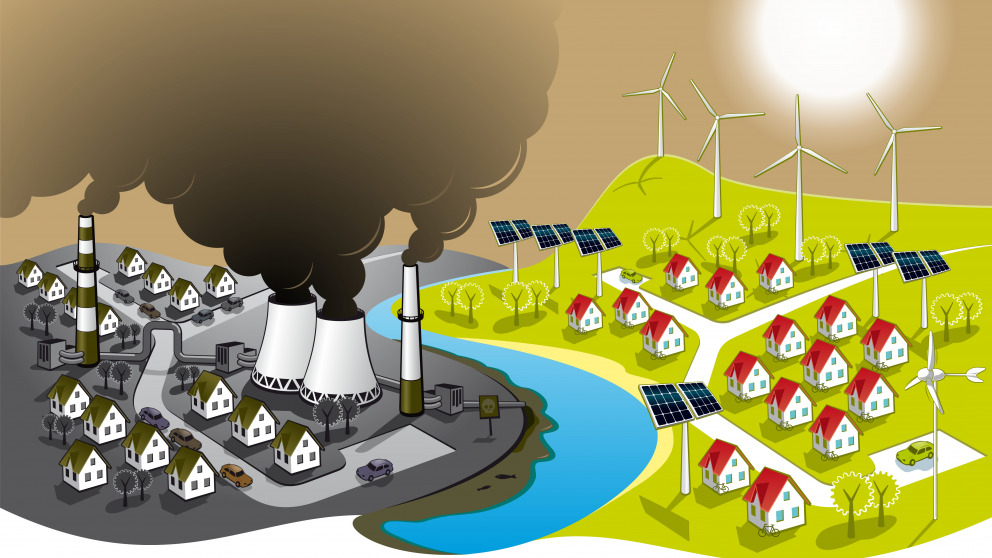Air Pollution and Climate Change: Fostering Better Decisions
29.01.2015

A fireplace in the living room – some pay a premium for the cosy atmosphere, others consider it an irresponsible luxury. From an environmental point of view, wood-burning for residential heating isn’t the best option. While CO2 emissions are lower than those from gas and oil heating, it often results in greater emissions of air pollutants. Air pollution not only affects people’s health, but many air pollutants also play a role in short-term climate change. These interactions between air pollutants and climate change are not yet common knowledge. In our research group, we asked ourselves how we could foster a more holistic consideration of consequences (positive and negative) with regard to these two prominent environmental issues: air pollution and climate change? One way to do this is by encouraging and supporting better-informed decision-making. Especially since there are plenty of options that result in the mitigation of both air pollution and climate change.
To reach a large audience of potential users with generalised information, an online platform would seem the obvious choice. In that case, it is crucial that the information is synthesised well and presented clearly, as well as being applicable to a wide variety of conditions. In the course of discussions at a workshop, we determined that the target audience that would be likely to benefit from such a tool would be actors at the local to regional level, e.g. municipalities, city governments, etc. We’ll label them all municipalities for the sake of discussion. (At national level or beyond, national environmental ministries or other institutes often have their own sources of information and greater resources at their disposal.) As a side note, municipalities are often required to make air quality plans if air pollution exceeds permitted values; a number of them also have climate change action plans.
The question is then, how do municipalities make decisions about which measures to implement, and on what information do they base those decisions? If you start looking into it, there are a lot of ‘decision-support’ tools out there. So why should we make yet another one? Dig a little deeper and more questions come up – at least they did for me. Are these tools used? Were they developed for one specific purpose, used, and have they now become obsolete? How do potential users find out about these tools? If training is needed to use them, will they still be used? I could go on for quite a while. In an effort to not forge ahead blindly, we decided to create a prototype decision-support tool for questions regarding air pollution and climate change and get some feedback about it. The prototype was based on input from workshops, collaborative projects with local municipalities, and discussions with colleagues, policy-makers, and others that work at the science-policy interface. We are now requesting feedback in the form of a survey designed by the IASS in collaboration with the European Environment Agency (EEA), which reflects upon such tools and the prototype we created. So, if any of your work relates to decision-making or influencing decision-making at municipal level, be it transport or infrastructure, waste or energy measures, it would be great if you could give us some feedback. The survey will close on 9 February 2015. If you would like to learn more about this work, please visit the ClimPol website.
Illustration: (c) istock/Antonio-BanderAS
